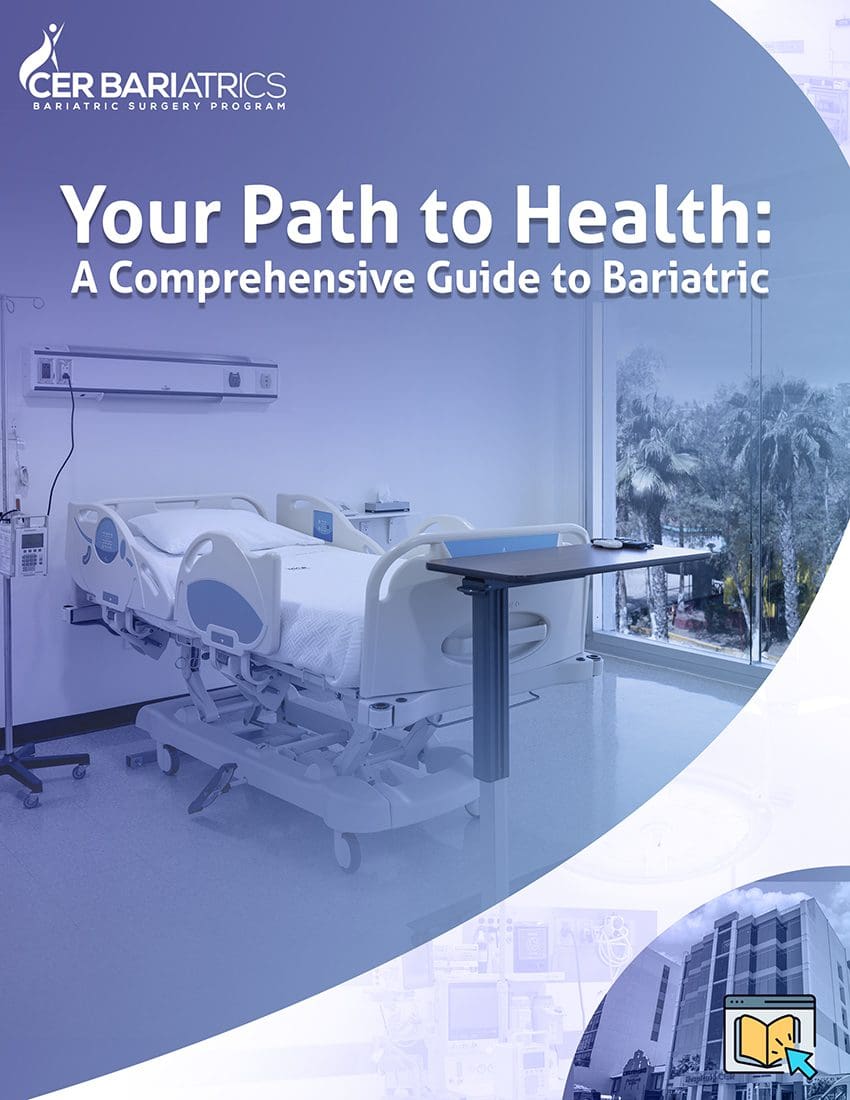You may encounter an unexpected side effect: hair loss after weight loss surgery. In this guide, we’ll explain why hair loss can happen after weight loss surgery and, the type of hair loss and share easy-to-follow tips to help you deal with and lessen this common problem.
Understanding Hair Loss After Weight Loss Surgery
Hair falling following weight loss surgery is a phenomenon that can catch many by surprise. While the physical transformations are often celebrated, the emotional impact of losing hair can be challenging. Your hair is not just a part of your appearance; it’s intertwined with your identity and self-confidence. Understanding the potential impact of hair loss is essential as you embark on this journey.
Managing Post-Surgery Hair Loss
Hair loss includes emotional challenges. It can trigger a range of emotions, from frustration and sadness to anxiety and even depression. In this guide, we’ll explore the emotional impact of hair loss and offer advice on how to manage and navigate these feelings. We’ll also discuss the importance of seeking support, whether from healthcare professionals, support groups, or loved ones.
Why Does Hair Loss Occur After Weight Loss Surgery?
Hair loss can affect bariatric patients for an average of three to five months after their surgeries. It’s important to understand that this is usually a temporary phase, and your hair will likely grow back.
Hair loss following surgery can result from common factors like rapid weight loss, nutritional deficiencies, insufficient protein consumption, and the physical stress your body experiences during the operation.
Less Common Causes of Hair Loss
While the factors mentioned above are common contributors to hair loss or thin hair, there are also less common reasons to consider. These include hormone imbalances, chronic iron deficiency, certain medications, medical conditions and excessive vitamin A intake. It’s crucial to consult with your doctor to rule out any underlying medical causes of sudden hair loss.
How Can You Minimize Hair Loss After Weight Loss Surgery?
Hair loss is a common concern for individuals who have undergone weight loss surgery. Fortunately, there are effective strategies to reduce this side effect, and one of the most crucial aspects is maintaining a healthy diet that supports hair health. In this chapter, we will delve into specific dietary tips to help you minimize hair loss and promote the growth of strong, beautiful hair.
Dietary Tips for Healthy Hair
Maintaining a well-balanced diet is essential for overall health, and it significantly influences the condition of your hair. Here are some dietary recommendations to support healthy hair growth:
Protein: The Hair Hero
Protein is often called the “building block” of hair and for a good reason. Hair is primarily composed of a protein called keratin, and ensuring an adequate intake of protein is vital for healthy hair growth and repair.
To incorporate more protein into your diet, consider lean sources such as poultry, fish, lean meats, eggs, dairy products, legumes, and plant-based options like beans and tofu. Aim to consume 60 to 80 grams of protein daily to support not only your body’s recovery after surgery but also your hair health.
Hydration for Hair Health
Hydration is essential for maintaining hair moisture and preventing brittleness. Dehydrated hair is more prone to breakage, so it’s crucial to drink plenty of water. Aim for at least 80 ounces of water daily to ensure your hair stays well-hydrated and resilient.
Diversifying Your Diet for Hair Nutrition
While protein is a key player in hair health, a balanced diet rich in various nutrients is equally important. Hair requires a wide range of vitamins and minerals to thrive. Ensure your diet includes plenty of fruits, vegetables, whole grains, and healthy fats to provide your body and hair with essential nutrients.
Consistency in Protein Intake
Consistency is key when it comes to protein intake for hair health. Your hair follicles need a continuous supply of amino acids, the building blocks of protein, to support growth and maintenance. To achieve this, aim to include a source of protein in every meal and snack. This consistency ensures that your hair receives the necessary nutrients consistently throughout the day.
The Role of Vitamin and Mineral Supplements
In some cases, it can be challenging to obtain all the required nutrients from your diet alone, especially in the post-surgery period. Your healthcare provider may recommend vitamin and mineral supplements to bridge these nutritional gaps. These supplements can be instrumental in preventing hair loss and supporting overall health.
Liquid and Powdered Protein Supplements
Meeting your daily protein goals can sometimes be challenging, especially if you have dietary restrictions or limitations after weight loss surgery. Liquid and powdered protein supplements offer a convenient way to ensure you’re getting the protein your body and hair need. Consult with your healthcare provider to determine the right supplements for your specific situation.
By following these dietary tips and strategies, you can take significant steps toward minimizing hair loss after weight loss surgery. Remember that a well-nourished body is more likely to have healthy and vibrant hair, so prioritize your nutrition to support your overall well-being and hair health.
Tips for Post-Surgery Hair Recovery
Your commitment to hair health doesn’t end with recovery. It’s crucial to maintain healthy and vibrant hair in the long run. Let’s delve deeper into the strategies and practices that will help you ensure your hair continues to thrive.
Lifelong Commitment to Hair Health:
Achieving and maintaining hair health is an ongoing commitment. Just as you’ve dedicated yourself to a healthier lifestyle through weight loss surgery, a similar dedication is required for your hair. This lifelong commitment involves adopting specific habits and making informed choices.
Balanced Nutrition for Hair
Balanced nutrition remains a cornerstone of maintaining your hair’s health. Beyond recovery, continue to focus on a diet that provides essential nutrients to support hair growth and strength. Ensure your meals are well-rounded, incorporating a variety of vitamins and minerals.
Protein-Rich Diet
Protein is the building block of hair. Continue prioritizing a protein-rich diet to provide your hair with the necessary amino acids for growth and repair. Hair grows faster with Lean meats, fish, dairy products, and plant-based protein sources, so should all have a place in your daily meals.
The Importance of Hydration
Proper hydration doesn’t lose its significance post-recovery. Maintaining adequate water intake is crucial for hair moisture, preventing brittleness, and sustaining overall hair health. Aim to consume at least 8 glasses of water daily.
Supplements for Long-Term Hair Health
While a well-balanced diet should provide most of the nutrients your hair needs, supplements can serve as insurance. Discuss with your healthcare provider whether continuing supplements, such as biotin or specific vitamins, are beneficial for your individual needs.
Hair Care Routine and Practices
Developing a gentle and effective hair care routine is paramount to protect your hair from damage. Use a mild shampoo and conditioner suitable for your hair type. Avoid excessive heat, use a heat protectant styling, and harsh hair treatments. Opt for wide-tooth combs or brushes with soft bristles to minimize damaged hair.
Managing Stress and Wellness
Stress reduction remains a key component of maintaining hair health. Chronic stress can contribute to hair problems, including hair loss. Prioritize stress management through relaxation techniques, meditation, or yoga. Regular exercise and sufficient sleep also play roles in sustaining overall wellness, which in turn supports healthy hair.
Regular Check-Ins with Healthcare Providers
Continuing regular check-ins with your healthcare providers is not only essential for overall health but also for monitoring your hair’s well-being. Your healthcare team can assess your nutritional status and the condition of your hair, making necessary adjustments to your care plan.
By committing to these strategies and maintaining a vigilant eye on your hair’s health, you can ensure that your journey towards healthier living, initiated by weight loss surgery, also leads to a lifetime of healthy and beautiful hair. Remember, every step you take towards a happier you is worth it, and your healthcare team is here to support you every step of the way.
Embracing Hair Health on Your Weight Loss Journey
In conclusion, hair loss after weight loss surgery is a common concern, but with the right knowledge and strategies, you can minimize its impact and maintain healthy, beautiful hair throughout your transformative journey. Remember, a healthier, happier you is within reach, and you have the support of a dedicated healthcare team to guide you every step of the way.
Related Post
Learn how to kickstart your weight loss journey






